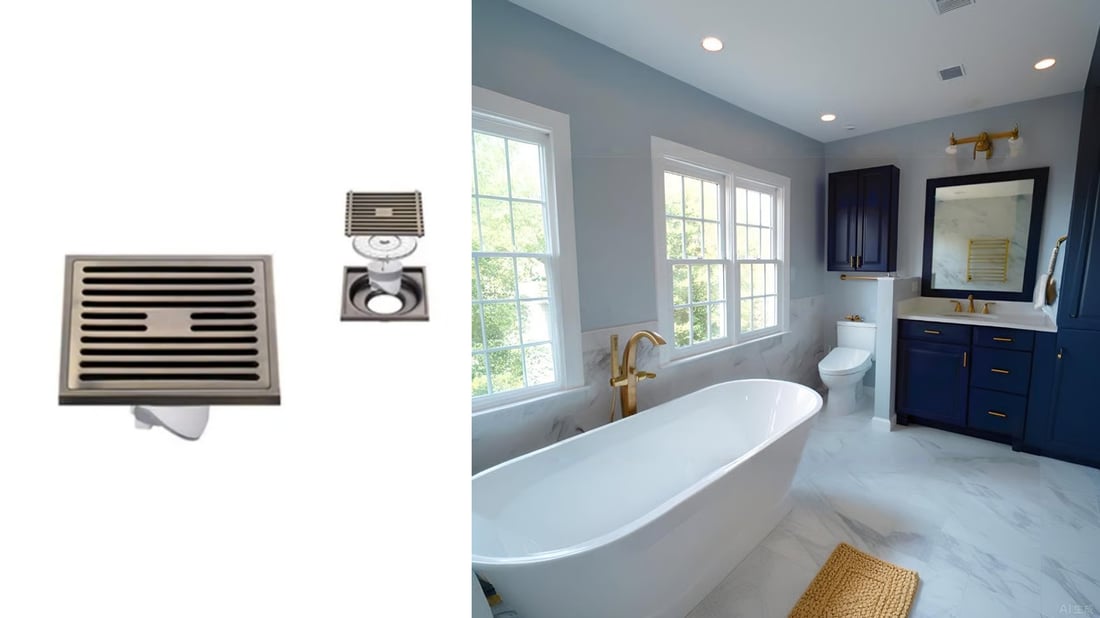When it comes to choosing a shower floor drain, there are several options to consider. Some popular types include center drains, linear drains, and square drains. Each type has its own set of advantages and disadvantages, so it's essential to choose the one that best fits your needs.
Benefits of a Good Shower Floor Drain
A high-quality shower floor drain can prevent water from pooling on your bathroom floor, reducing the risk of slips and falls. It can also help prevent unpleasant odors by allowing water to drain properly. Additionally, a good shower floor drain can enhance the overall look of your shower by providing a sleek and modern finish.
Installation Tips for Shower Floor Drains
Proper installation is crucial when it comes to shower floor drains. Make sure to follow the manufacturer's instructions carefully and use the correct tools for the job. It's also essential to ensure that the drain is properly aligned and sealed to avoid any leaks. If you're unsure about installing a shower floor drain, it's best to seek the help of a professional plumber.
Maintenance and Cleaning
To keep your shower floor drain in top condition, it's essential to regularly clean and maintain it. Remove any hair or debris that may be clogging the drain to prevent blockages. You can also use a mixture of baking soda and vinegar to help break down any buildup in the pipes. Additionally, consider installing a drain cover to catch any unwanted items before they enter the drain.
Common Problems with Shower Floor Drains
Some common issues that may arise with shower floor drains include clogs, leaks, and foul odors. Clogs can occur due to a buildup of hair, soap scum, or other debris. Leaks may be caused by loose fittings or damaged pipes. Foul odors can be a sign of bacteria or mold growth within the drain. If you encounter any of these problems, it's important to address them promptly to prevent further damage.
Upgrading Your Shower Floor Drain
If you're looking to upgrade your shower floor drain, there are several options available. Consider installing a modern linear drain for a sleek and contemporary look. You can also opt for a stainless steel or brass finish for added durability and style. Additionally, some drains come with advanced features like built-in hair catchers or odor blockers for enhanced functionality.
DIY vs. Professional Installation
While some homeowners may choose to install a shower floor drain themselves, it's important to weigh the pros and cons of DIY installation versus hiring a professional. DIY installation can save you money, but it may also lead to mistakes that could result in costly repairs down the line. Professional installation ensures that the job is done correctly the first time, giving you peace of mind.
Best Practices for Preventing Clogs
To prevent clogs in your shower floor drain, it's essential to be mindful of what goes down the drain. Avoid washing large amounts of hair or soap down the drain, as these can easily cause blockages. Consider using a drain cover to catch any hair or debris before it enters the drain. Regularly cleaning the drain with a mixture of baking soda and vinegar can also help prevent clogs.
Choosing the Right Size and Style
When selecting a shower floor drain, it's crucial to choose the right size and style for your shower. The size of the drain will depend on the volume of water your shower produces and the layout of your bathroom. As for style, consider a drain that complements the overall aesthetic of your shower, whether it's modern, traditional, or minimalist.
Conclusion
Shower floor drains play a crucial role in maintaining a safe and functional bathroom. By choosing the right type of drain, installing it correctly, and following proper maintenance practices, you can ensure that your shower remains clean and free of clogs. Whether you opt for a DIY installation or hire a professional, investing in a high-quality shower floor drain is a decision that will benefit you in the long run.
Quote Inquiry
contact us

